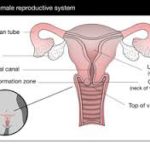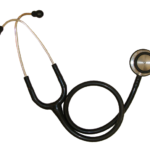
The emphasis in today’s medicine is on preventative medicine. That is the buzz and you should catch up with it. If you are female, these are some tips/tests/procedures that you must have that will aid your longevity.

Pap Smear- This procedure is simple and prevents cancer of the cervix. It is recommended to be done every 3 years up till the age of 70 years.

Mammography- This is an X-ray of the breast to screen for Breast cancer. It is recommended to be done every 2 years for women 50 years and above. However, because the aggressive forms of breast cancer often occur in the 40s, many physicians recommend starting at age forty. Women with high dense breast tissue do better with breast ultrasounds than mammograms.

Menopause- This is a period of low estrogen and progesterone and is diagnosed 12 months after your last menstrual period. Symptoms include hot flashes, irregular periods, night sweats, vaginal dryness, hot flashes, mood changes, loss of breast fullness, insomnia and weight gain.

Sex during this period might be painful because of the vaginal dryness but course of topical Premarin cream applied to the vagina will restore its moistness.
Hormone replacement therapy with a combination of estrogen and progesterone is an option if the symptoms are bad.
Non-hormonal options include antidepressants like Venlafaxine and paroxetine.
Diabetes Type 1 Screening– This is the early onset diabetes due to insulin secretion deficiency +/- resistance to insulin. Peak onset is between ages 5-7 and 10-14. It runs in families and it may also be triggered is usually triggered by some assault like a viral infection.

Diabetes Type 2 Screening- This used to be called adult-onset diabetes but not anymore as many young people are now diagnosed partly because of obesity, physical inactivity, and high alcohol consumption. It also runs in the family and forms 90% of all cases of diabetes.
Blood Pressure- This is a range and it varies with age however as a guide if the top number is greater than 140 or the bottom number is greater than 90 when you check your BP, you should see a doctor.
Immunizations- You need to discuss your baby’s recommended specific immunizations with your doctor to make sure your child is up to date.
Girls between ages 9-23 are now advised to get Gardasil vaccine to prevent Human Papillomavirus infection.
You should get a flu shot every year.
You ought to get a Tetanus-Diphtheria booster every 10 years too.
If you are over 60 years, you may want to get a shingles vaccine.
If you are over 65 years or are immunocompromised, you should get a pneumococcal vaccine if you have not had one before, or if it is more than 5 years since you last had the vaccine.
Colon Cancer screening- Everyone over the age of 50 should be screened. Initial screening is a FIT test where your stool sample is checked for traces of blood. If positive, you would be required to go for a colonoscopy. Under age 50 you may need to do the FIT test every 2-3 years if you had a family member with a history of colon cancer or polyps.
Cholesterol screening- Women over the age of 30 should get their cholesterol level checked every year. If you have diabetes you might want to start screening after age 20. High cholesterol level is a precursor to ‘heart attack’ and sudden death.
Osteoporosis Screening- This is done after age 65. Osteoporosis is age related loss of bone density and the reason for easy fractures in the elderly. People with signs of osteoporosis can be placed on preventative therapy.
Dental and Eye Exams- You should see the dentist and an optometrist every two years to check for teeth and eyes as part of preventative medicine.
 Physical exams- Make it a habit every year (perhaps
Physical exams- Make it a habit every year (perhaps on your birthday) to see your doctor where you should discuss the things highlighted earlier with him/her. Your doctor should also perform a physical check-up of all major systems and chat with you about depression, anxiety, stress, diet, alcohol, smoking, illicit drug use and lifestyle.
on your birthday) to see your doctor where you should discuss the things highlighted earlier with him/her. Your doctor should also perform a physical check-up of all major systems and chat with you about depression, anxiety, stress, diet, alcohol, smoking, illicit drug use and lifestyle.
Please Note: You must not perform female circumcision on your girl child. It has many terrible consequences for them later in life some of which may include promiscuity ( which is what the practice is intended to prevent in many instances). It may also cause difficulty during childbirth, poor sex life, and infertility from the back flow of menstrual blood (due to the sewing up of the vagina opening in certain cultures).